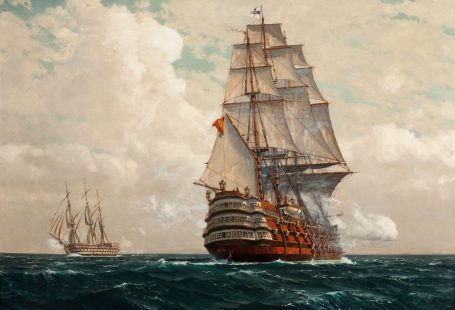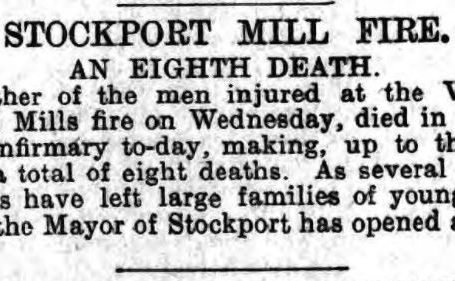29 November 2011
Murder, mania and a leech-powered weather machine:
up to 4 million pages of historical newspapers now searchable online at britishnewspaperarchive.co.uk
– Unparalleled access to a treasure trove of stories
– Up to 4 million pages from the British Library’s newspaper collections
– Will transform family history research
The British Library and online publisher brightsolid today launch a website that will transform the way that people use historical newspapers to find out about the past. The British Newspaper Archive website will offer access to up to 4 million fully searchable pages, featuring more than 200 newspaper titles from every part of the UK and Ireland. The newspapers – which mainly date from the 19th century, but which include runs dating back to the first half of the 18th century – cover every aspect of local, regional and national news.
See: www.britishnewspaperarchive.co.uk
Highlights include:
– Exhaustive coverage of crime and punishment – from infamous murder trials to heart-rending stories of men, women and children transported to Australia for the most minor thefts (in one case, seven years transportation for the theft of seven cups and five saucers);
– Eyewitness accounts of social transformation – newspaper reports, commentary and letters to the editor on topics ranging from the railway mania of the mid-19th century to the extraordinary expansion of the temperance movement;
– Illustrations and advertisements – the aspirations and anxieties of the time laid bare in searchable ads and classifieds, peddling everything from the latest fashion to miracle cures for baldness and venereal disease;
Alongside first-hand accounts of historic events such as the wedding ofVictoriaand Albert and the Charge of the Light Brigade, these newspapers also provide countless vivid details of how our ancestors lived and died, how they went up and down in the world and how they fed, clothed and entertained themselves.
Historical newspapers provide a fresh perspective on the history we think we know: contemporary reporting of notable individuals and milestone events yield a host of surprising details often absent from conventional accounts.
The Great Exhibition of 1851 is now remembered as a triumph of Victorian enterprise and creativity – however, reports from the time bristle with complaints about strikes, delays and the exhibition’s devastating effect on trade in the capital during its run. More upbeat reporting reveals that one of the biggest crowd-pullers of the exhibition was a machine capable of cutting, gumming and folding 25,000 envelopes a day, while there was even space in theCrystalPalacefor such oddities as the Tempus Prognosticator – an apparatus that used leeches to predict approaching storms.
The website offers a wealth of material for people researching family history, including family notices, announcements and obituaries, while the ability to search by name, location, date and newspaper title means that people can search across hundreds of thousands of pages at a time as they track down that elusive ancestor. Searching the website generates free preview snippets of results found – to download full articles and images, users have a range of payment options including pay-per-view access for 48 hours or 30 days, and a subscription package for a year. The website is free to use in the British Library’s reading rooms.
“The launch of the British Newspaper Archive website opens up the British Library’s newspaper collection as never before,” said Ed King, the British Library’s Head of Newspapers. “Rather than having to view the items on-site at the Library, turning each page, people across the UK and around the world will be able to explore for themselves the gold-mine of stories and information contained in these pages – and the ability to search across millions of articles will yield results for each user, that might previously have been the work of weeks or months, in a matter of seconds and the click of a mouse.”
The British Newspaper Archive is the result of a ten-year partnership between the British Library and brightsolid, announced in May 2010. Over the past 12 months, brightsolid’s digitisation team, based at the British Library Newspaper Library at Colindale, has been digitising up to 8,000 pages of historic newspapers every working day. The project is expected to scan up to 40 million newspaper pages over the next ten years.
Welcoming the new website, Ed Vaizey MP, Minister for Culture, Communications and Creative Industries, said: “The British Newspaper Archive is a rich and hugely exciting resource, packed with historical detail. It’s a great example of the public and private sectors collaborating to deliver something that neither party could have delivered by themselves. I searched for my own constituency of Wantage and within seconds had 42,000 results – an indication of the breadth and variety of material featured. I’m delighted that the British Library and brightsolid are working together to transform access to the nation’s published memory.”
To date the project has concentrated on out-of-copyright material pre-dating 1900, but brightsolid is negotiating with a number of rightsholders to obtain permission to digitise a range of more recent newspaper runs from the early to mid-20th century. The site will continue to grow as newly-scanned pages are uploaded.
“We’ve unearthed national treasures at the turn of every page,” said Chris van der Kuyl, CEO of brightsolid. “All human life is here; from a man who decided one day to walk round the world in an iron mask, to bullet-stopping corsets and the art of wide-sleeved shoplifting – this is a digital Aladdin’s Cave. The 65 million stories available online today, taken together, are the story of the UK and we’re adding 120,000 stories a day, so you’ll be able to uncover what life was like in your street, your town and your area.”
Bob Satchwell, Executive Director of the Society of Editors, said: “The British Newspaper Archive website opens up a magical new window on a magnificent treasure store of real history, recording the lives of ordinary people doing extraordinary things in vibrant communities, rather than merely the cold facts of politics and pestilence. Thank goodness ageing newspapers are being brought back to life through new partnerships and modern, accessible media, to enthrall new generations.”
The launch and further expansion of the British Newspaper Archive website will help the British Library to fulfil its strategic goals of long-term preservation of and access to the national newspaper collection. The Library’s newspaper strategy aims to secure the future of this unique resource by moving the hard-copy collections from the current building at Colindale to a purpose-built storage facility in Boston Spa,West Yorkshire. Access to the collection will be provided via microfilm and digital copies made available at the Library’s main site at St Pancras.
“The British Library’s Newspaper Collection has a strong claim to be the published record of our shared national, regional and local memory,” said Ed King. “By providing online access to that shared memory, the British Newspaper Archive website will transform the way that we tap into our past and make connections with the generations who came before us.”
For further information, preview access to the website, images, video or interviews please contact Ben Sanderson at the British Library Press Office: [email protected] +44 (0)1937 546126
or Carolynne Bull-Edwards, Head of PR at brightsolid: [email protected] +44 (0)7932 723866
or Katie Hayward at Lansons Communications: [email protected] +44(0)20 7294 3631 +44 (0)7809 441803
The Media Centre (http://media.britishnewspaperarchive.co.uk) for the British Newspaper Archive contains images, photos, press releases, facts and figures, articles about the stories in the archive and video content, all of which is available for downloading
Notes for Editors:
1. The British Library is the national library of the United Kingdom. It provides world class information services to the academic, business, research and scientific communities and offers unparalleled access to the world’s largest and most comprehensive research collection. The British Library’s collections include 150 million items from every era of written human history beginning with Chinese oracle bones dating from 300 BC, right up to the latest e-journals. www.bl.uk
2. brightsolid began life in 1995 as Scotland Online. It has two division’s brightsolid Online Publishing and brightsolid Online Technology. brightsolid Online Publishing has a number of innovative online businesses around people and places including Friends Reunited. So whether it’s staying in touch with old friends, finding new friends or a partner, building a family tree, tracing your ancestors or exploring the history of your house brightsolid help people connect with their present, their future and their past. brightsolid’s Online Technology is a leadingUK independent provider of online IT business services
Since 2002 brightsolid online publishing has managed ScotlandsPeople.gov.uk, the official genealogy website for Scottish ancestry, in a partnership between the General Register Office forScotland, the National Archives of Scotland and the Court of the Lord Lyon. In 2007, brightsolid acquired findmypast.com, an online family history site. Recently renamed Findmypast.co.uk, it was the first website to put the complete birth, marriage and death indexes forEnglandandWalesonline. brightsolid also operates the official 1901 census (1901censusonline.com) and 1911 census (1911census.co.uk) websites in partnership with The National Archives.
In March 2010, brightsolid completed the acquisition of Friends Reunited Group. Friends Reunited is the original social network with 23 million members. It was launched in 2000 to put old school friends back in touch with each other and swiftly became a British phenomenon. Friends Reunited Dating is one of the top paid dating websites in the UK. Sister site Genes Reunited was launched in 2003 and is currently the UK’s largest family history website with over 11 million members worldwide and 750 million names listed. This acquisition has further strengthened brightsolid’s expertise in the family history market.
In May 2010, brightsolid announced a partnership with the British Library to digitise up to 40 million pages of historic newspapers. The ten year agreement will deliver the most significant mass digitisation of newspapers theUK has ever seen. Digitisation of the collection will mean that those people who haven’t previously been able to access the physical resource will now be able to access it online. In particular it is an important resource for the genealogy community helping them to bring to life how their ancestors lived. It will also offer a unique insight into major events and key periods of historical interest.
The company’s online technology division specialises in managing clients’ information availability and online presence through hosting, internet access, applications and business continuity products and services.
Headquartered in Dundee, the company is owned by the publishers D.C. Thomson and has offices in Edinburgh and London.
3. Pricing information
The British Newspaper Archive is free to search. To view the content in a newspaper page image, there is a choice of time-limited PPV (Pay Per View) or subscription packages. There are two PPV options available: the £6.95 package that lasts for 48 hours, and the £29.95 package that lasts for 30 days. The subscription package is priced £79.95 for one year.
The British Newspaper Archive can be used for free on-site at the British Library’s Reading Rooms in St Pancras, Colindale and Boston Spa.
ENDS




